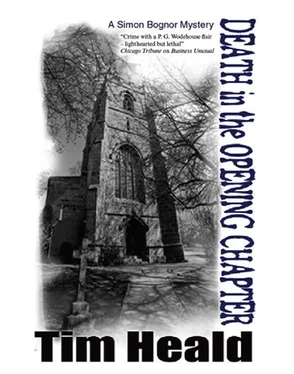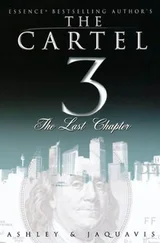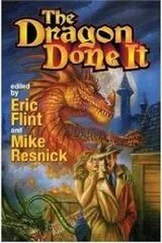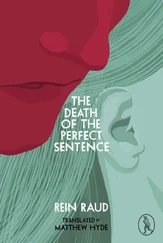Tim Heald - Death in the opening chapter
Здесь есть возможность читать онлайн «Tim Heald - Death in the opening chapter» весь текст электронной книги совершенно бесплатно (целиком полную версию без сокращений). В некоторых случаях можно слушать аудио, скачать через торрент в формате fb2 и присутствует краткое содержание. Жанр: Криминальный детектив, на английском языке. Описание произведения, (предисловие) а так же отзывы посетителей доступны на портале библиотеки ЛибКат.
- Название:Death in the opening chapter
- Автор:
- Жанр:
- Год:неизвестен
- ISBN:нет данных
- Рейтинг книги:5 / 5. Голосов: 1
-
Избранное:Добавить в избранное
- Отзывы:
-
Ваша оценка:
- 100
- 1
- 2
- 3
- 4
- 5
Death in the opening chapter: краткое содержание, описание и аннотация
Предлагаем к чтению аннотацию, описание, краткое содержание или предисловие (зависит от того, что написал сам автор книги «Death in the opening chapter»). Если вы не нашли необходимую информацию о книге — напишите в комментариях, мы постараемся отыскать её.
Death in the opening chapter — читать онлайн бесплатно полную книгу (весь текст) целиком
Ниже представлен текст книги, разбитый по страницам. Система сохранения места последней прочитанной страницы, позволяет с удобством читать онлайн бесплатно книгу «Death in the opening chapter», без необходимости каждый раз заново искать на чём Вы остановились. Поставьте закладку, и сможете в любой момент перейти на страницу, на которой закончили чтение.
Интервал:
Закладка:
This was true, metaphorically at least, so Monica kept shtum but looked mulish.
‘Not a chance, poor bugger. And the reasons were completely beyond his purlieu, let alone control. And after two or three, or even more, such rejections he was feeling a bit down. Only human nature. Even for a man of God. Maybe particularly, for a man of God.’
He looked round, evidently thinking he had scored a great victory and talked lots of sound common sense.
‘I still don’t see any evidence that the vicar had written a book at all. Still less submitted it to a publisher; even less had it rejected several times and been driven to suicide.’
‘It’s happened to better men than the Reverend Sebastian Fludd,’ said Sir Branwell, portentously. ‘Established authors; men of letters; anybody lacking celebrity status. I wouldn’t be surprised if even little Allgood had had his problems.’
‘Precisely,’ said Monica, pouncing. This was her moment and she seized it. ‘Little Allgood is getting a bit long in the tooth; he’s past it; he has trouble staying in flight; which is why he was so keen on using the vicar as a hypothetical example.’
‘Talking of long in the tooth,’ said Branwell, ‘you have to admire the man’s gnashers. They must have cost a pretty penny. That’s a lot of copies.’
‘That’s Amis not Allgood,’ said Monica, who liked to keep up with matters literary, even when they concerned dentistry. ‘He’s in danger of becoming a grumpy old man, but he’s not like Allgood. Not remotely. And certainly not when it comes to teeth or slush piles.’
‘I still thought he spoke awfully well,’ said Camilla, managing to miss several points at the same time. ‘I felt really sorry for poor Sebastian. I mean how could they?’
‘I feel sorry for him too,’ said Bognor. ‘He’s dead.’
‘And however well Allgood spoke, and however much everyone huffs and puffs about whether or not he was being hypothetical or not, neither of you is going to bring him back. Much better to do as I said, draw a line in the sand and get on with things. It’s what he would have wanted after all. No use crying over spilled milk or hanged vicars. These things happen. Life has to go on.’
It was on the tip of his tongue to say that they had had this argument before, but Bognor thought better of it, buttoned his lip, which was stiffish, and gave very little away. Privately, however, he decided it would be sensible to have another word with Martin Allgood, and to establish whether or not he knew more of the deceased than he had previously been letting on. After all, Bognor reckoned he was the only one present who had read Allgood – the aptly named Minimal Expectations, which had Dickensian echoes and more than a little Dickensian hubris.
TWENTY-TWO
Before talking to Allgood again, Sir Simon had to phone the office. Harvey Contractor, his ambitious, talented, overqualified sidekick was manning the place in his boss’s absence, and it was to him that Bognor spoke. He was so immersed in the English countryside and the death of the vicar, that he had almost forgotten that Contractor existed.
‘Thick plot already,’ he said. ‘But getting thicker by the moment.’
Contractor had a degree, a good one, in semiotics from the University of Wessex in Casterbridge. His boss pretended not to know what this meant. Contractor humoured him in this, as in most respects. One day, Bognor’s job would be his. No competition. All he had to do was bide his time and keep his nose clean.
‘Anything you say, boss.’
‘This is supposed to be a holiday,’ said Bognor, trying not to whinge. ‘It’s anything but. I’m working flat out. Bloody hideous.’
Contractor yawned. The phone call had interrupted his ‘fiendishly difficult’ Sudoku. Contractor habitually finished it fast. He himself could be fiendishly difficult when he wanted, but he tried not to be with Bognor. He rather liked the old thing and saw through the veil of assumed stupidity which, on the whole, Sir Simon wore lightly. It did not fool Contractor, nor really was it meant to.
Contractor had read the whole of Proust in the original French, being averse to translation, and being able to read in a lot of languages. He was weaned on Simenon, also in French, and was an expert on crime literature from Bulgaria, Flanders and Finland. He was fluent on Thomas Merton and early Coetzee. He had fingered Henning Mankell as an emerging talent before anyone else in Britain was aware of him, and he had learned to despise Dan Brown similarly early on. He was, in short, literaturely perspicacious and he didn’t do festivals. He believed that writers should be read and not heard. Had he been at the Fludd, he might have heckled.
‘Problem?’ he asked.
‘Routine,’ said his boss. ‘Quick trip to Kew. Check out the army list in the National Archives. I want you to cast an eye over the Mobile 13th in the sixties. See if there are any familiar names there.’
‘That’s Blenkinsop’s old regiment, isn’t it?’
‘Could be.’ Contractor was right. He nearly always was. It was the main reason he was hired.
‘OK. Can you tell me what I’m looking for?’
‘I could, but I won’t.’ Bognor smiled and laughed inwardly. If the information he was seeking was there, Contractor would find it. He was damned, though, if he was going to give his subordinate the satisfaction of knowing this. Bad enough to have someone as cocky as Contractor working for him; worse still to encourage him.
Contractor laughed back. He understood the rules of the game only too well. ‘Your call, boss,’ he said. ‘I’ll get down to Kew and call you back. Remember me to Lady B.’ He laughed again. He and Monica had a good relationship; flirtatious, competitive, but mutually respectful as well. Quite right.
Actually, Bognor rather liked Harvey Contractor, which those who thought he was more conventional than he actually was might have found peculiar. Sir Branwell, who referred to Harvey, in a faux-jocular way, as ‘Your nig-nog’, affected to find the affection odd, but Bognor was completely without the usual prejudices of middle-class, middle-aged, white English males. He knew that a certain sort of person, usually female, usually shrill, much disliked him because of the way he looked and sounded. He rode with the punches and accepted his appearance, visual and verbal, as a sort of camouflage, which had the effect of concealing his true self from friend and foe alike. This was just as well, not least because Bognor, perversely, preferred the company of his natural enemies. His friends couldn’t begin to understand this, and Bognor reciprocated.
His was a small department. In the old days, Parkinson had been the crusty old boss and he the thrusting Young Turk. Well, up to a point. Even Bognor saw the humorousness of the idea of him as thrusting young anything. Parkinson was long since retired and dead into the bargain, though the ultimate demise had been quite recent. After the old boy had spent a decently long retirement, he finally died in the fullness of years at home in his slippers. Not a bad way to go: Scotch in hand, together with a half-complete Times crossword.
Now, it was he who had become the crusty old boss and Contractor the thrusting Young Turk. There was no one else of serious substance. SIDBOT had always been a girl of slender means; a lean outfit; a small streamlined organization which habitually punched above its weight. This irritated smarter, bigger departments, which often found themselves out-thought and outmanoeuvred.
He sighed and felt briefly smug. The sense of self-satisfaction did not persist, alas, for he felt too much like a good deed in a naughty world, and he firmly believed that, while his was a model department, this meant that there were many other departments which were pretty grim. Life itself was pretty grim, but maybe that was another matter. He took a Hobbesian view of human existence, even though he personally had rather enjoyed what he was increasingly aware had to be thought of in the past tense. He was often asked to accept that his meaningful life was over, and even though he contested this view robustly, he was forced to recognize that there was some truth in it. Retirement was looming; he had collected his bus pass; he was soon to be a pensioner. But that didn’t mean he had given up, even if he was forced to accept that he was now an old man in a hurry.
Читать дальшеИнтервал:
Закладка:
Похожие книги на «Death in the opening chapter»
Представляем Вашему вниманию похожие книги на «Death in the opening chapter» списком для выбора. Мы отобрали схожую по названию и смыслу литературу в надежде предоставить читателям больше вариантов отыскать новые, интересные, ещё непрочитанные произведения.
Обсуждение, отзывы о книге «Death in the opening chapter» и просто собственные мнения читателей. Оставьте ваши комментарии, напишите, что Вы думаете о произведении, его смысле или главных героях. Укажите что конкретно понравилось, а что нет, и почему Вы так считаете.












